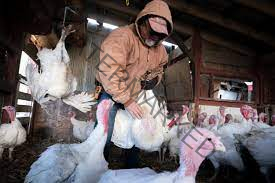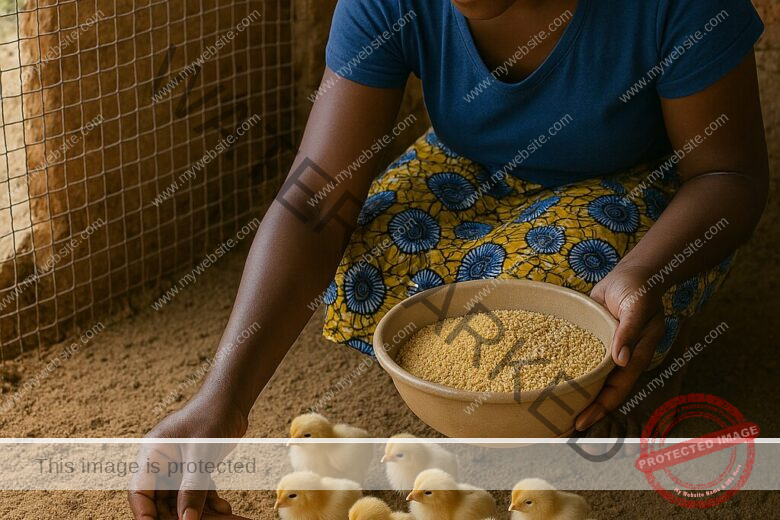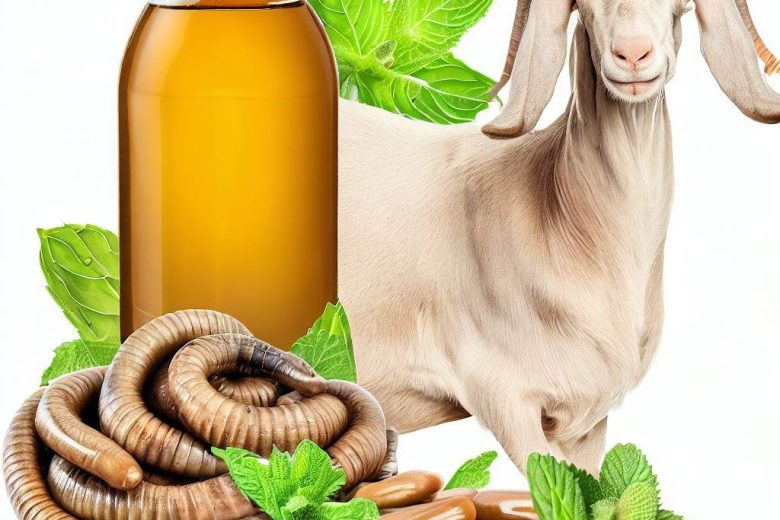Avian influenza disease in poultry is an extremely contagious viral disease that affects poultry animals. It is caused by a variety of viruses, including the H5N1, H7N9, and H9N2 strains.
Avian Influenza can cause severe illness and even death in poultry and can spread easily from bird to bird. If not properly managed, it can also affect humans, although this is very rare.
However, in this article, we will discuss the symptoms, diagnosis, and treatment of Avian Influenza in poultry, as well as ways to prevent its spread on poultry farms. We will also look at the use of herbal remedies for treating the disease in poultry.
Avian Influenza Disease In Poultry Farm And How To Treat With Herbs
Avian influenza, also known as bird flu, is a contagious viral infection that affects birds. It is caused by strains of the influenza A virus, which can also infect humans and other animals.
Avian influenza is highly contagious in birds and can be deadly, as some strains can cause severe illness and even death in birds.
Read Also: Coccidiosis Diseases in Poultry Farms and How To Treat With Herbs
Avian influenza can be spread directly between birds, or indirectly through objects that have come into contact with an infected bird, or through contact with the droppings of an infected bird.
The disease is most commonly spread through contact with an infected bird or its droppings, but it can also be spread through contaminated food or water, or through the air.
Cause of Avian Influenza in Poultry
Avian influenza, commonly referred to as “bird flu”, is a contagious virus that affects poultry, such as chickens, ducks, and turkeys.
The virus is most commonly spread through contact with infected birds, their droppings, or their secretions. Other sources of infection include contaminated surfaces, equipment, and feed. Bird flu can be extremely deadly for birds, causing high mortality rates in affected flocks.
Read Also: 20 Common Diseases In Poultry Farm
The main cause of avian influenza in poultry is contact with wild birds, which can carry the virus from one farm to another.
Wild birds can also bring the virus in from other regions that have previously experienced outbreaks.
Additionally, contaminated feed, equipment, and water can also be responsible for the spread of the virus.
In some cases, poultry may become infected with avian influenza through contact with infected people or other animals.
This is known as “cross-species” transmission and is more common in certain types of bird flu, such as the H5N1 strain.
Read Also: 12 Poultry Farming Tips For Beginners [Success Guide]
Symptoms of Avian Influenza in Poultry
Avian Influenza, also known as bird flu, is a contagious respiratory disease in birds caused by influenza viruses. Outbreaks of avian influenza can cause devastating losses in poultry farms as the virus is highly contagious and can spread rapidly among birds.
The most common symptoms of avian influenza in poultry farms include: respiratory distress, such as coughing, sneezing, and rasping; depression; decreased appetite; and decreased egg production. Other symptoms may include swollen head and neck, greenish diarrhea, and sudden death.
Infected birds may also show signs of nervousness, increased thirst, discharge from the eyes and nostrils, and decreased egg production.
In some cases, infected birds may also develop neurological signs such as paralysis, convulsions, and tremors. Avian influenza is difficult to diagnose and requires laboratory testing for confirmation.
Therefore, it is important to contact a veterinarian if any of the above symptoms are noticed in the birds.
Read Also: Disease Prevention and Control In Nigeria Poultry PDF
If avian influenza is suspected, it is important to take immediate action to reduce the risk of spread to other birds. This includes isolating infected birds, disposing of dead birds properly, and thoroughly cleaning and disinfecting affected areas.
Treatment of Avian Influenza in Poultry
Avian Influenza is a serious viral infection that affects poultry, primarily birds. It is an extremely contagious disease and can be fatal to poultry.
Avian Influenza is caused by a type A strain of the influenza virus, which is the same virus that causes the flu in humans.
Read Also: 15 Common Diseases That Affect Fish Farm And How To Treat
Drugs
The most common drugs used to treat avian influenza in poultry are antivirals such as oseltamivir, amantadine, and rimantadine.
These drugs work by inhibiting the replication of the virus and reducing the severity of the infection. However, they must be used early in the course of the disease to be effective.
Herbal
Herbal remedies can also be used to treat avian influenza in poultry. Herbal remedies can include the use of garlic, ginger, and oregano.
These herbal remedies have antiviral properties and can help reduce the severity of the infection.
Biosecurity Measures
Biosecurity measures are important for preventing the spread of avian influenza in poultry. Examples of biosecurity measures include providing separate housing for infected and healthy birds, regular cleaning and disinfection of equipment and housing, and restricting access to poultry.
Read Also: 15 Common Diseases of Cattle Farm in Africa and How to Treat it
How to Administer: Dosages, Administration Methods, and Safety Precautions
When administering drugs, herbs, or other treatments to poultry, it is important to follow the instructions and dosage provided by the veterinarian or manufacturer.
Administration methods may vary depending on the form of the drug or treatment. For example, antivirals may be administered orally, through injection, or as a topical solution.
When administering herbs or herbal remedies, it is important to follow the instructions for the specific herb or remedy being used.
Safety precautions should also be taken when administering any treatments or drugs to poultry. It is important to always wear protective clothing and gloves when handling infected birds or administering treatments.
Additionally, any materials used to administer treatments should be disposed of properly to prevent the spread of the disease.
Read Also: 10 Common Viral Pig Diseases And How To Treat
Prevention Strategies for Avian Influenza in Poultry Farms
Prevention Strategies for Avian Influenza in Poultry Farms
1. Vaccination
Vaccination is a key prevention strategy for avian influenza in poultry farms. Vaccines are available that can protect birds from both low and highly pathogenic forms of the virus.
Vaccines must be administered according to the manufacturer’s instructions and the local regulations.
2. Biosecurity
Biosecurity measures can help to reduce the likelihood of an avian influenza outbreak on a poultry farm.
These measures include controlling access to the farm, restricting movement of personnel and equipment, and thoroughly cleaning and disinfecting the farm on a regular basis.
3. Healthy Flock Management
Keeping a healthy flock is one of the best ways to prevent avian influenza. This involves providing good nutrition, proper housing, and a stress-free environment for the birds. Regular monitoring of the flock’s health should also be done to identify any signs of illness.
4. Surveillance
Regular monitoring of the poultry flock and the surrounding environment can help to identify any potential avian influenza outbreaks. This includes testing for the virus in poultry, as well as testing for the presence of the virus in wild birds and other animals.
5. Hygiene
Good hygiene practices are essential for preventing avian influenza on poultry farms. This includes wearing protective clothing when working with the birds, using clean equipment, and disposing of dead birds properly.
Risk Factors for Avian Influenza Outbreaks
Avian influenza outbreaks can be devastating for birds, wildlife, and humans. It is important to be aware of the risk factors associated with avian influenza outbreaks in order to prevent their spread.
Close Interaction Between Domestic Birds and Wild Birds
The close interaction between domestic birds and wild birds is one of the key risk factors for avian influenza outbreaks.
Wild birds can act as a reservoir for avian influenza viruses and can transmit them to domestic poultry when they come in contact. This is why it is important to keep domestic poultry away from wild birds.
Overcrowded and Unsanitary Conditions
Another risk factor for avian influenza outbreaks is the presence of overcrowded and unsanitary conditions in poultry farms. Overcrowding and poor hygiene can lead to increased contact between birds, making it easier for the virus to spread.
The migration of wild birds can also be a risk factor for avian influenza outbreaks. Wild birds can carry the virus with them as they migrate, bringing it to areas where it was previously not present.
The importation and introduction of new poultry to a region can also be a risk factor for avian influenza outbreaks. If new poultry is brought in from an area where avian influenza is present, the virus can spread to the local poultry, leading to an outbreak.
Human Risk
Lastly, people can also be a risk factor for avian influenza outbreaks. People who work with poultry can spread the virus to other birds by coming into contact with infected birds, or by not properly washing their hands and clothing after working with birds.
How to Diagnose and Testing for Avian Influenza in Poultry
In order to prevent the spread of avian influenza, it is important to diagnose and test for it in poultry farms.
Lookout for Signs and Symptoms
The first step in diagnosing and testing for avian influenza is to look for the signs and symptoms of the disease.
These may include respiratory distress, such as coughing and sneezing, lethargy, decreased appetite, diarrhoea, and sudden death.
If any of these signs are present, it is important to test for avian influenza as soon as possible.
Collect Samples from Affected Birds
The next step is to collect a sample from the affected birds. This can be done by collecting a swab from the bird’s respiratory tract or collecting a sample of the bird’s faeces.
The sample should then be sent to a laboratory for testing. In the laboratory, the sample will be tested for the presence of avian influenza viruses.
Prevent the Disease from Spreading
If the sample tests positive for avian influenza, the poultry farm will have to take steps to prevent the disease from spreading.
These steps may include disinfecting the farm, separating sick birds from healthy birds, and vaccinating the birds.
It is also important to monitor the birds for signs of infection and to test them regularly.
Vaccination for Avian Influenza in Domestic Poultry
Vaccination is a key tool in controlling avian influenza (AI) in domestic poultry. Vaccines can protect chickens and turkeys from AI infection, reducing the severity and spread of the disease.
Vaccinating chickens and turkeys can also reduce the risk of AI transmission to humans.
Vaccination for AI in domestic poultry is usually performed through the use of “inactivated” vaccine, which contains dead AI virus particles.
These particles are injected into the birds, where they stimulate the immune system to produce antibodies to fight against AI. This type of vaccine is safe for poultry and does not cause disease.
In some cases, live “attenuated” AI vaccines may be used. These vaccines contain weakened AI virus particles that cause the birds to produce antibodies, but do not cause disease.
Live attenuated vaccines are more effective at inducing immunity in poultry than inactivated vaccines, but may have a higher risk of causing disease in some birds.
When vaccinating domestic poultry, it is important to ensure that the right vaccine is used and that it is administered correctly. Vaccinated birds should also be monitored for any signs of disease or infection.
How To Cure Bird Flu In Chickens
To cure Bird Flu in chickens, one should immediately isolate the affected birds from the rest of the flock.
Vaccination is the most effective way to protect birds from the virus. Vaccines are available from veterinary supply stores and must be administered according to the manufacturer’s instructions. Disinfecting and cleaning the area, equipment and bedding of the affected birds is also important to prevent further spread of the virus.
Proper nutrition and hygiene practices should also be maintained to prevent the virus from spreading further.
Finally, if the infected birds are showing symptoms, they should be treated with antiviral drugs as recommended by a veterinarian.
10 Herbs That Kill Viruses Fast
- Garlic: Garlic has long been known for its anti-viral properties and is often used to help treat and prevent the common cold.
- Ginger: Ginger has anti-inflammatory, anti-bacterial and anti-viral properties which can help fight off viruses.
- Echinacea: This herb is known for its ability to boost the body’s ability to fight off infections.
- Olive leaf: Olive leaf extract has antiviral properties and can help treat respiratory infections.
- Oregano: Oregano has antiviral and antibacterial properties that make it effective against viruses.
- Astragalus: Astragalus is an herb used in Traditional Chinese Medicine to help boost the immune system.
- Licorice root: This herb has been used for centuries to treat viral infections.
- Goldenseal: Goldenseal contains berberine, an alkaloid which has antiviral properties.
- Cat’s Claw: Cat’s claw is known for its anti-inflammatory and antiviral effects.
- Elderberry: Elderberry is a popular cold remedy due to its antiviral properties.
Antiviral Herbs For Poultry
Antiviral herbs for poultry are a natural way to help protect your birds from viruses. Some of the most popular antiviral herbs include Echinacea, garlic, elderberry, sage, and oregano.
These herbs contain compounds that help boost the immune system and fight off viruses. Also, they may help reduce inflammation in the respiratory system, aiding in the prevention of viral infections.
To get the most benefit, these herbs should be used regularly in the poultry feed or added to water. This will help to ensure that the birds are kept healthy and virus-free.
Herbal Treatment Of Newcastle Disease In Poultry Pdf
Herbal treatment of Newcastle Disease in poultry is a safe, natural and cost-effective alternative to traditional methods of disease prevention.
Herbal treatments can help reduce the spread of the disease, treat affected birds, and speed up recovery times.
Natural remedies such as garlic, turmeric, ginger, oregano, eucalyptus, and neem are effective against Newcastle Disease.
These herbs are known to fight viruses and bacteria, reduce inflammation, and boost the immune system. They can be used in combination with traditional treatments to reduce the severity of the infection.
Poultry farmers should consult with their local veterinarian for specific advice regarding the best herbal treatment for Newcastle Disease in their flock.
Also, pdf documents containing further information on the herbal treatment of Newcastle Disease are available online.
Conclusion
Avian influenza is a major threat to the poultry industry. It is important to take preventive measures such as good hygiene, proper biosecurity and vaccination to reduce the risk of infection. Treatment of infected birds should be done as soon as possible, by using herbs or antiviral drugs, or a combination of both.




